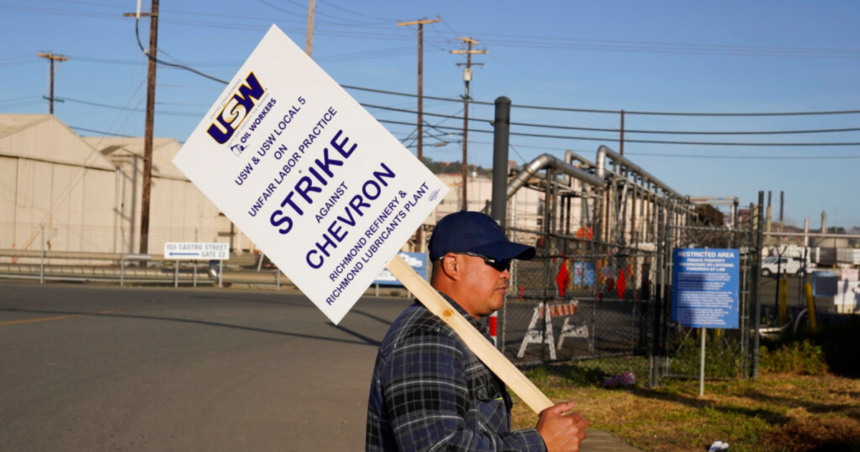This week’s Donald Trump interview with Elon Musk on X is facing criticism from auto workers.
The United Auto Workers union filed unfair labor practice charges after the two discussed firing striking workers during their Monday conversation.
“You’re the greatest cutter, they go on strike and you say, ‘That’s OK. You’re all gone,” Trump said about Elon.
UAW filed separate charges against Trump and Musk with the National Labor Relations Board, alleging that the men interfered with workers who may want to join a union. In a statement, the UAW wrote, “Under federal law, workers cannot be fired for going on strike, and threatening to do so is illegal.”
The NLRB is investigating the charges. The AP reported that a senior advisor from the Trump campaign called the allegations “frivolous” and a “shameless political stunt.”
RELATED STORY | Harris and Walz show their support for organized labor with appearance at Detroit union hall
For many politicians seeking the labor vote, alienating unions does not benefit their cause.
“Workers are recognizing the value of unions that advocate for them and can positively impact their lives,” said Hayley Brown, research associate at the Center for Economic and Policy Research.
The U.S. Department of Labor states that about 14.4 million Americans are members of unions, approximately 10% of the workforce.
While this rate remains consistent with the previous year, it has significantly decreased from 1983 when one in five workers belonged to unions.
Unions have recently experienced some notable victories.
“The successes in strikes and organizing efforts have motivated workers and also fueled the accumulated frustration over concessions made during the recession and the risks taken during COVID. There is substantial anger, especially among young people who feel uncertain about their future,” said Kate Bronfenbrenner, the director of Labor Education Research at Cornell’s ILR School.
Support for unions is relatively high, with the latest Gallup polling showing around 67% of respondents approving of unions. Three out of four supported the UAW in their recent negotiations, resulting in agreements with automakers that increased pay by 33%.
Bronfenbrenner highlights that strikes and labor movements can have a domino effect.
“Workers are recognizing the value of unions that advocate for them and can positively impact their lives, and having a say in their workplace is crucial for quality of life and economic well-being,” she explained.
Recent union triumphs include a new contract for 28,000 flight attendants at American Airlines and a contract for California Disneyland Resort workers with the largest wage increase ever following a landmark strike.
In Massachusetts, Uber and Lyft drivers could secure union representation if a ballot measure is passed by voters in November.
There have been setbacks as well. Workers at two Mercedes factories in Alabama declined joining the UAW.
However, this occurred after Volkswagen employees in Tennessee successfully joined, marking a significant victory in the Southern region.
“This is new ground for them,” Brown said. “But we’ve also witnessed major wins in contract negotiations. When workers see unions achieving such successes, it prompts them to consider how it could benefit them in their workplaces.”
Amid these wins and losses, both Republicans and Democrats are acknowledging the political influence of unions.
For the first time, a Teamsters president, Sean O’Brien, was invited to speak at the Republican National Convention.
The AFL-CIO, representing 60 unions and 12.5 million workers, has endorsed Vice President Kamala Harris.
RELATED STORY | Disneyland performers vote to join labor union after pay raise





